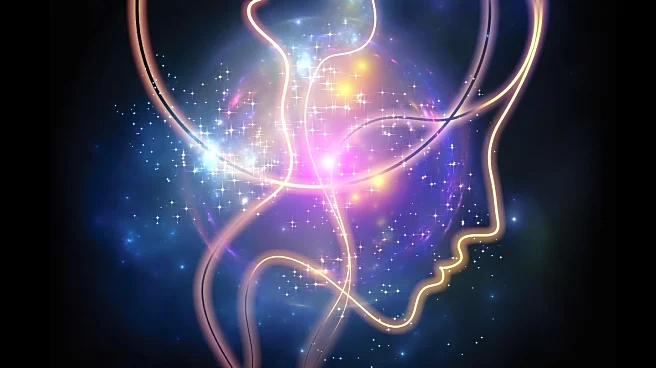What is the story about?
What's Happening?
Researchers from the HUN-REN BRC Institute of Biophysics and Semmelweis University have discovered that DMT, a natural psychoactive compound, can reduce the harmful effects of stroke in animal models. Published in Science Advances, the study found that DMT treatment reduced infarct volume and edema formation in a rat stroke model. The compound restored the blood-brain barrier's structure and function, inhibited inflammatory cytokine production, and reduced brain microglia activation. These findings suggest that DMT could offer a novel approach to stroke treatment by protecting brain vessels and reducing inflammation.
Why It's Important?
Current stroke therapies are limited, and DMT's dual action of protecting the blood-brain barrier and reducing inflammation presents a promising alternative. This research could lead to the development of new treatments that complement existing methods, potentially improving recovery outcomes for stroke patients. The study highlights the potential of natural compounds in medical research and their role in addressing complex health issues like stroke.
What's Next?
Clinical trials are underway to explore DMT's efficacy and long-term effects in stroke treatment. Researchers aim to determine the compound's potential as a complementary therapy alongside existing treatments. The study's findings could influence future research on natural compounds and their applications in neurological disorders.
Beyond the Headlines
The research underscores the importance of exploring natural compounds in medical science and their potential to offer innovative solutions to health challenges. It also raises questions about the ethical considerations of using psychoactive substances in medical treatments and the need for comprehensive clinical evaluations.

















